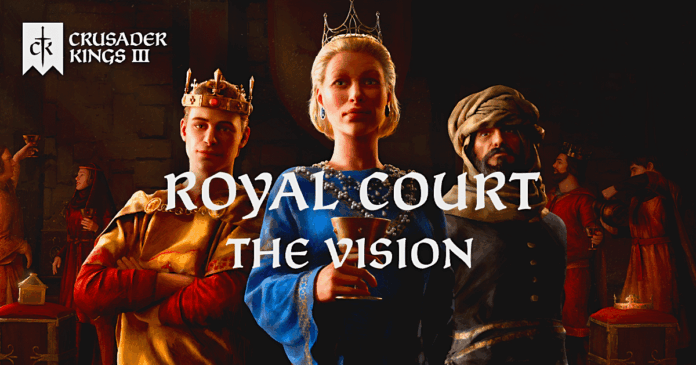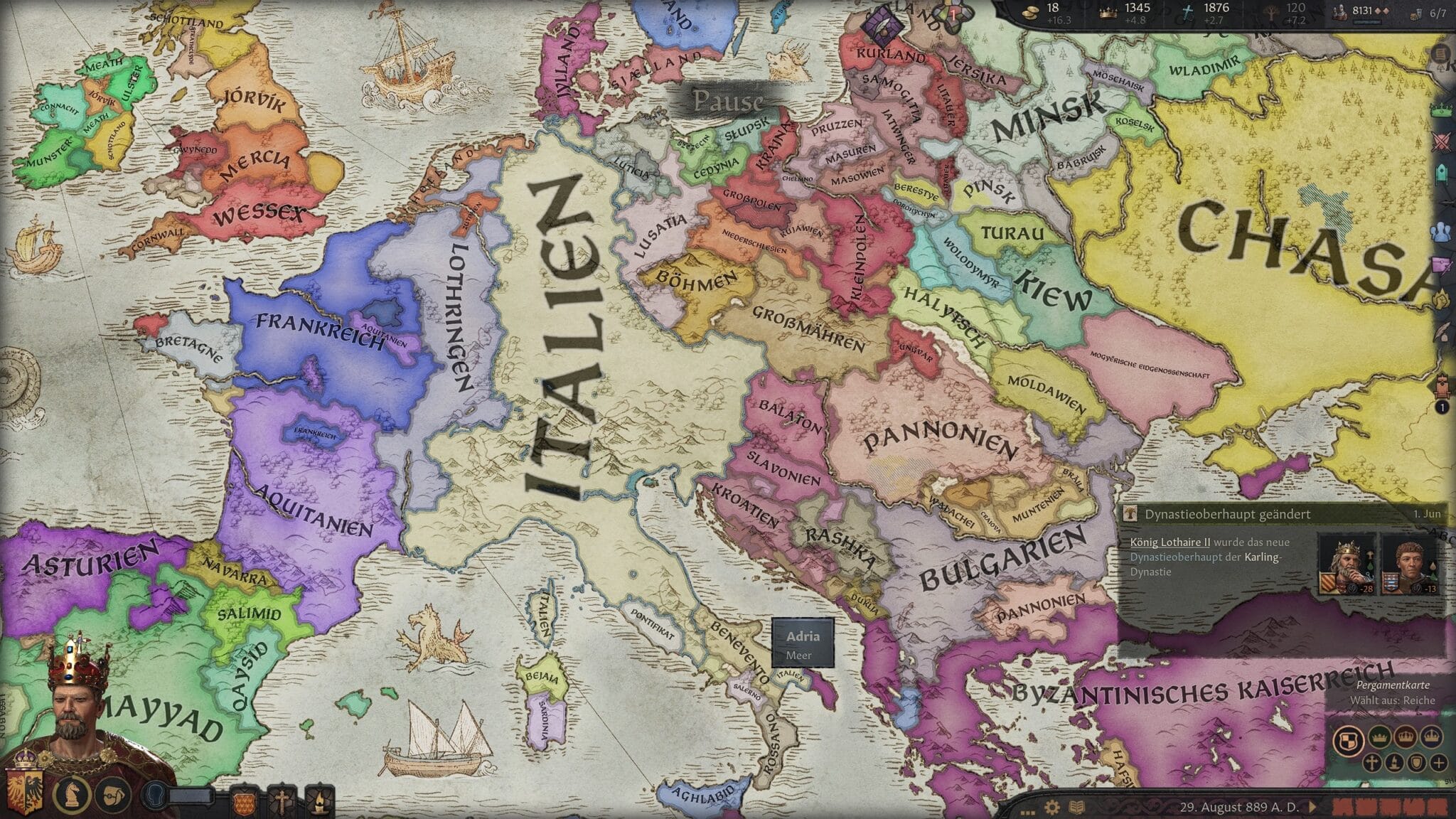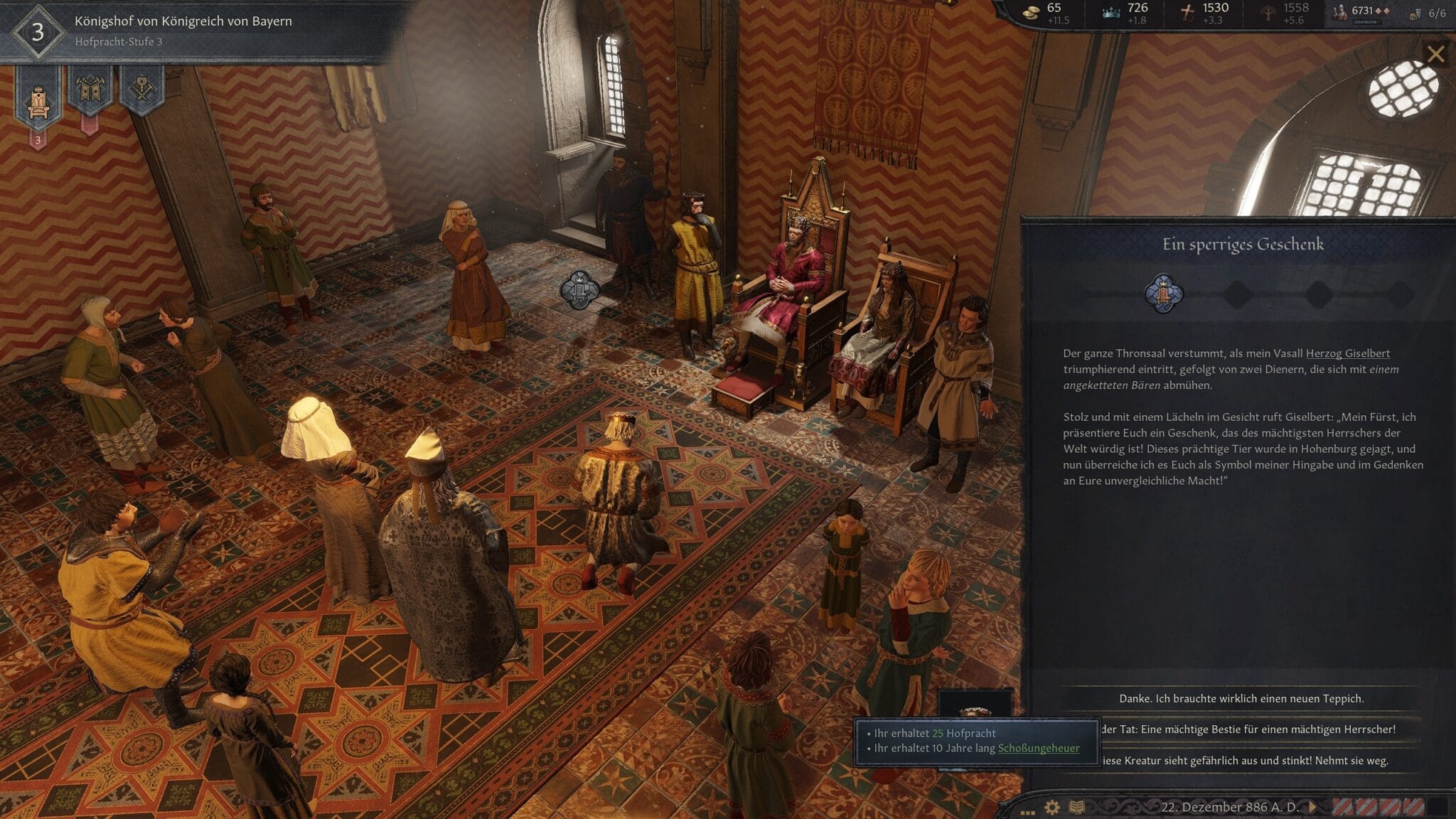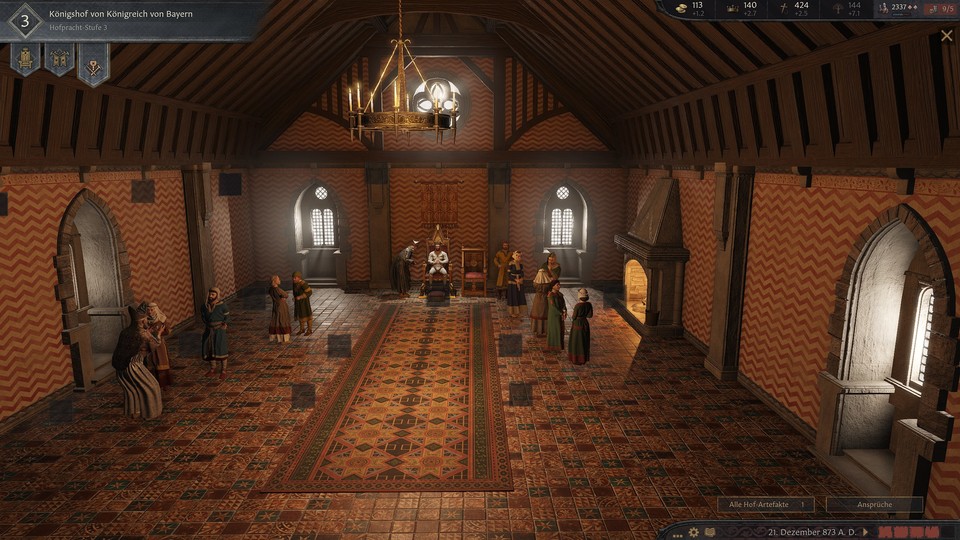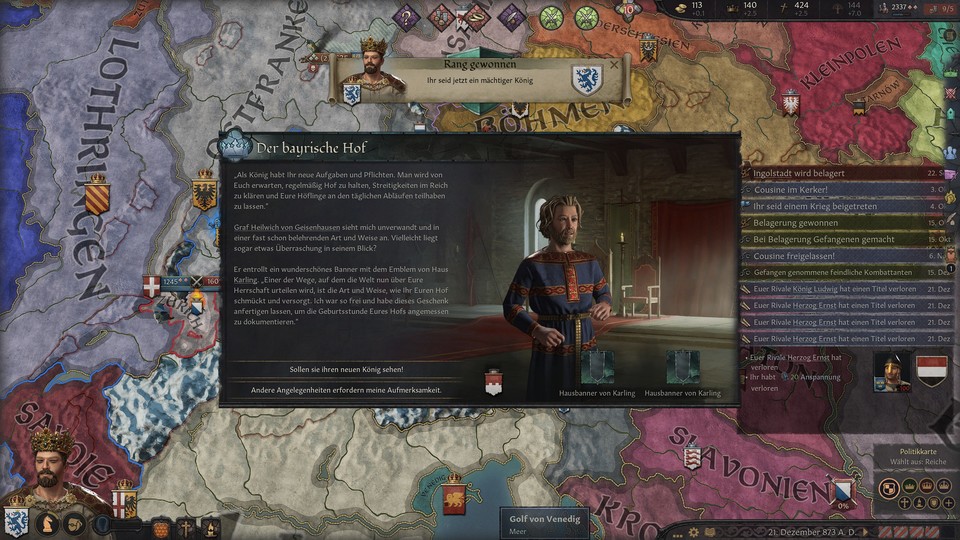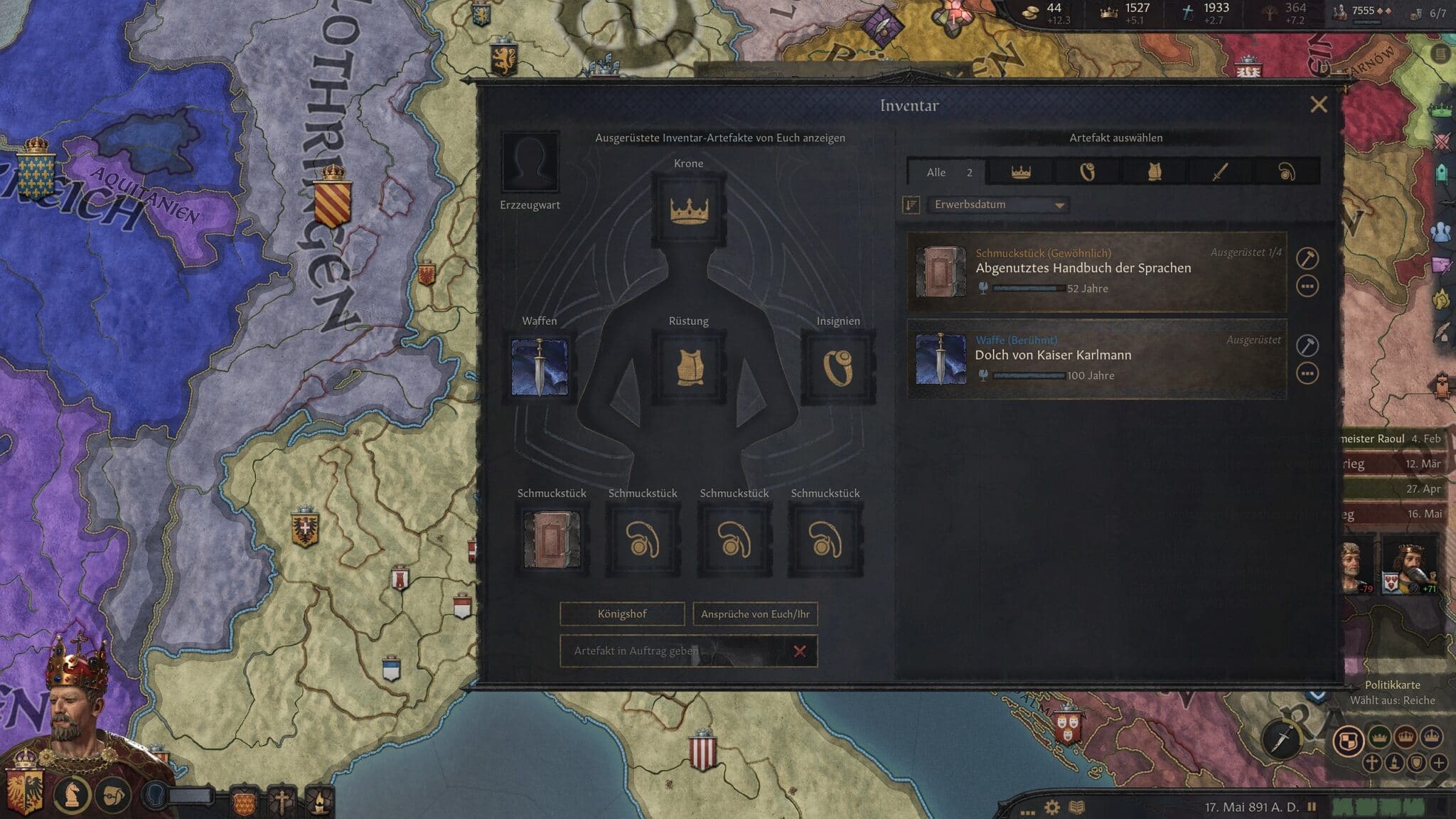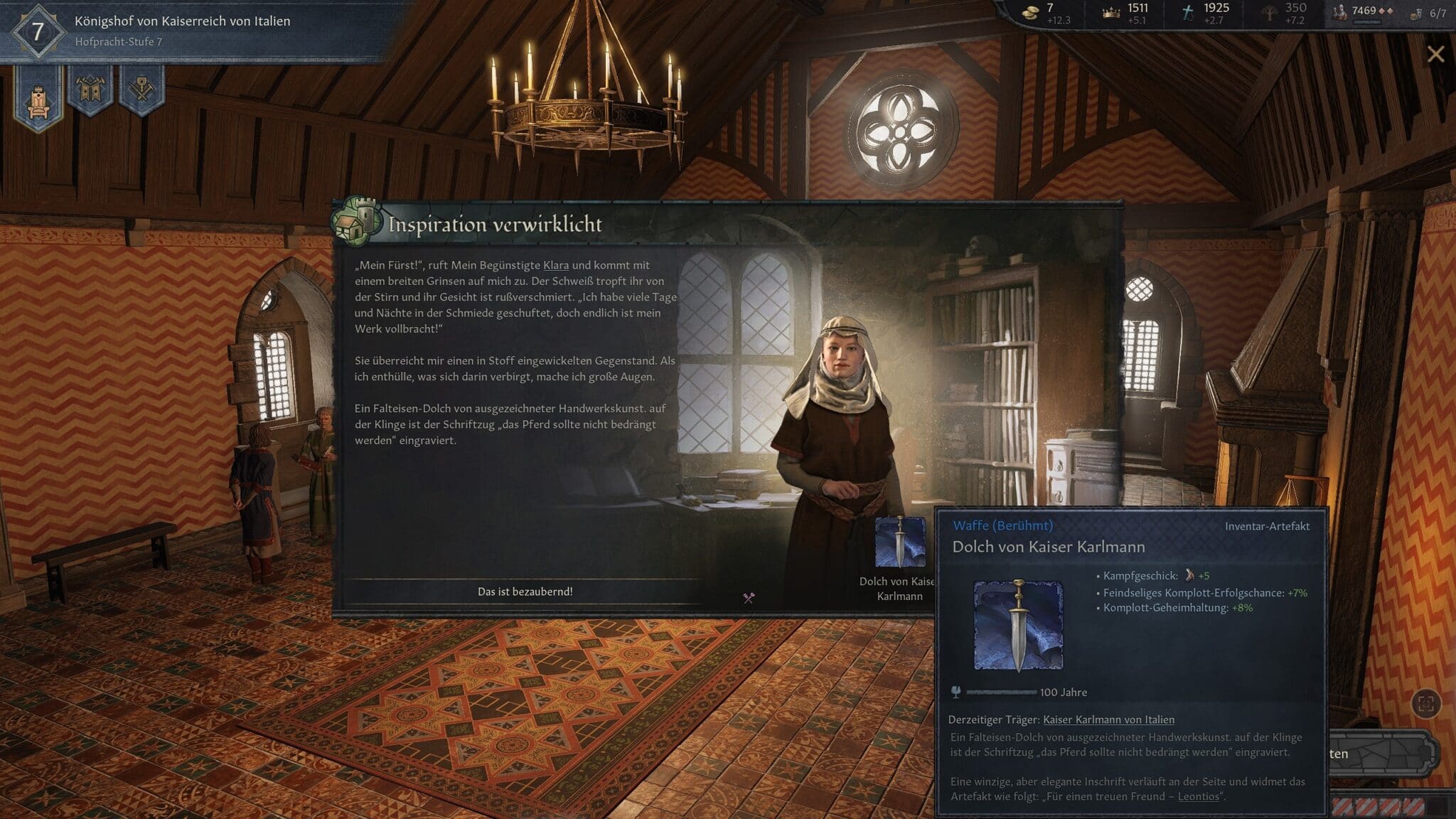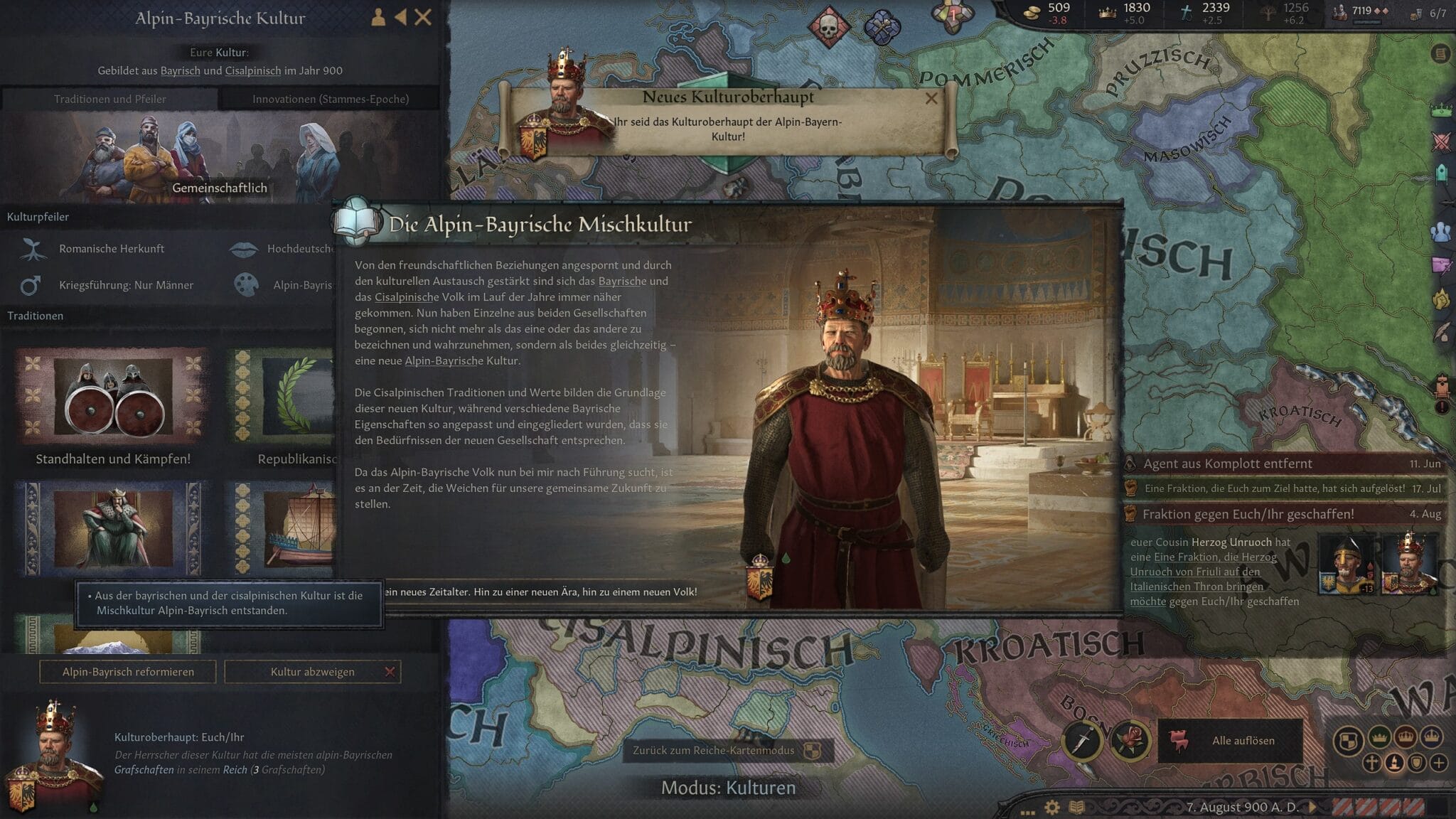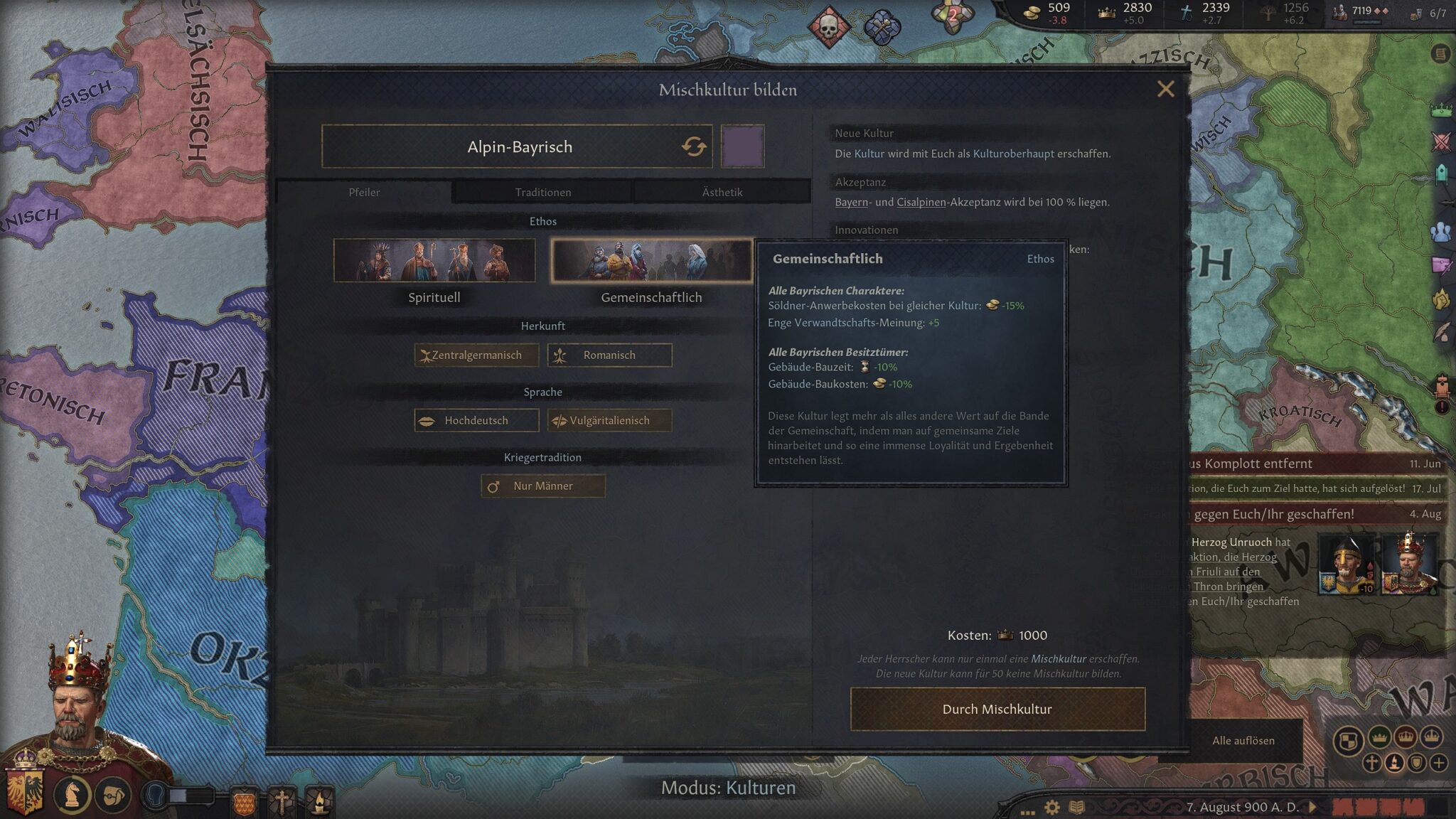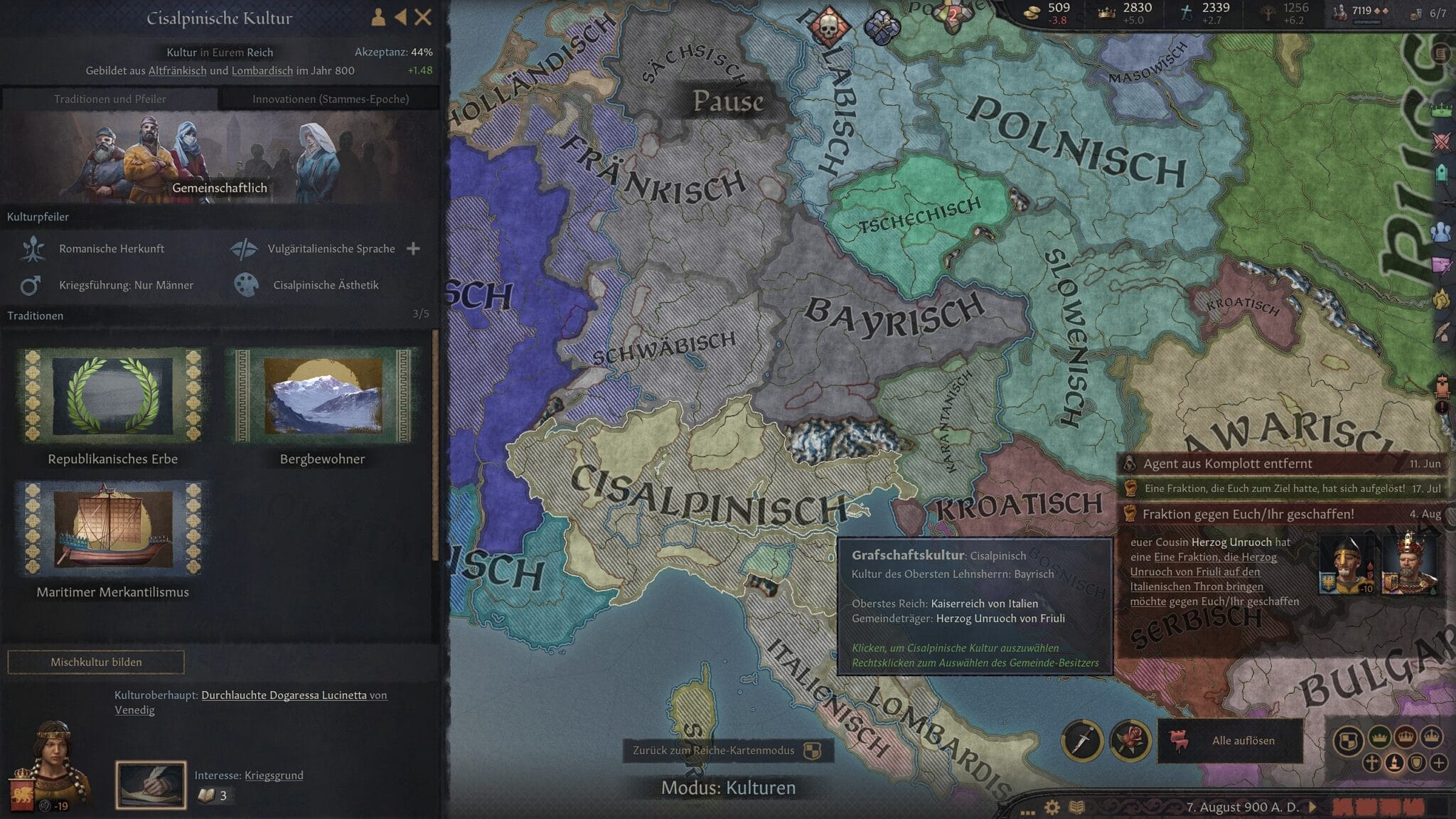In review: The first DLC for Crusader Kings 3 makes the medieval world even more lively. However, not all fans will be equally enthusiastic about the features.
Sometimes when I read about rulers and empires of the Middle Ages, I think to myself, my God, why didn’t those guys actually invest what little wealth they had in meaningful things? Roads, for example. Did you know that as late as 1600 there was only one road in the whole of Sweden that was passable for larger carts?
Instead, kings and queens have always preferred to wallow in luxury, raise armies and hire mercenaries to pursue their fantasies of power. While conquering has always been an integral part of the global strategy game Crusader Kings 3 anyway, with the DLC Royal Court for 30 euros comes, among other things, a 3D horn hall in which everything revolves around luxury and power at court.
Is this enough, one and a half years after release, to inject new life into Paradox’s big success title? The answer in the test is yes – and no. Because how suitable Royal Court is for you depends on how much time you have already spent in the main game.
Table of Contents
What does Royal Court contain?
Since I already covered the contents of the DLC in detail in my preview of CK3: Royal Court in December and nothing significant has changed since then, I’ll just give you an overview of the contents again here and concentrate in the rest of the test on classifying for whom this expansion is really suitable in the end.
Crusader Kings 3: Royal Court makes the Middle Ages more tangible than ever
The 3D Throne Room
Fortan, kings and emperors of feudal kingdoms or clans (not tribes!) get their own throne room, which opens as a 3D room via a menu item on the right bar. All court officials and members of the royal family are presented there like in a slightly moving still life. You can also display artefacts here and impress your subjects with all kinds of other splendour.
Every few years you are now allowed to “hold court” there and listen to the needs of your subjects. These can be disputes between nobles, hardships of troubled peasants or even curious events in which you are given a bear as a gift, for example.
In addition, from time to time the members of the court itself will take your attention, so that there is more direct interaction with your councillors as well as family members.
Gorgeous
The splendour in your court is the amount of luxury you flaunt. The more you invest in the court each month, the more impressed your vassals will be, which will make them more compliant. If instead you are stingy, they will despise you. Expectations increase with the size of your empire. Therefore, as your power increases, the court will devour a significant portion of your income.
Note
The DLC is free for everyone with the Royal Edition or Expansion Pass. However, anyone playing Crusader Kings 3 via Microsoft’s Game Pass will need to purchase the expansion. Royal Court is not part of the subscription.
Artifacts
The artefacts known from the predecessor also bring splendour. They now come in two forms: Court artefacts, which you display in the throne room for your glory, and personal artefacts such as swords, chain mail and books. Artefacts – when worn or displayed – give you all sorts of bonuses, such as extra prestige and reverence, opinion benefits and improved combat stats.
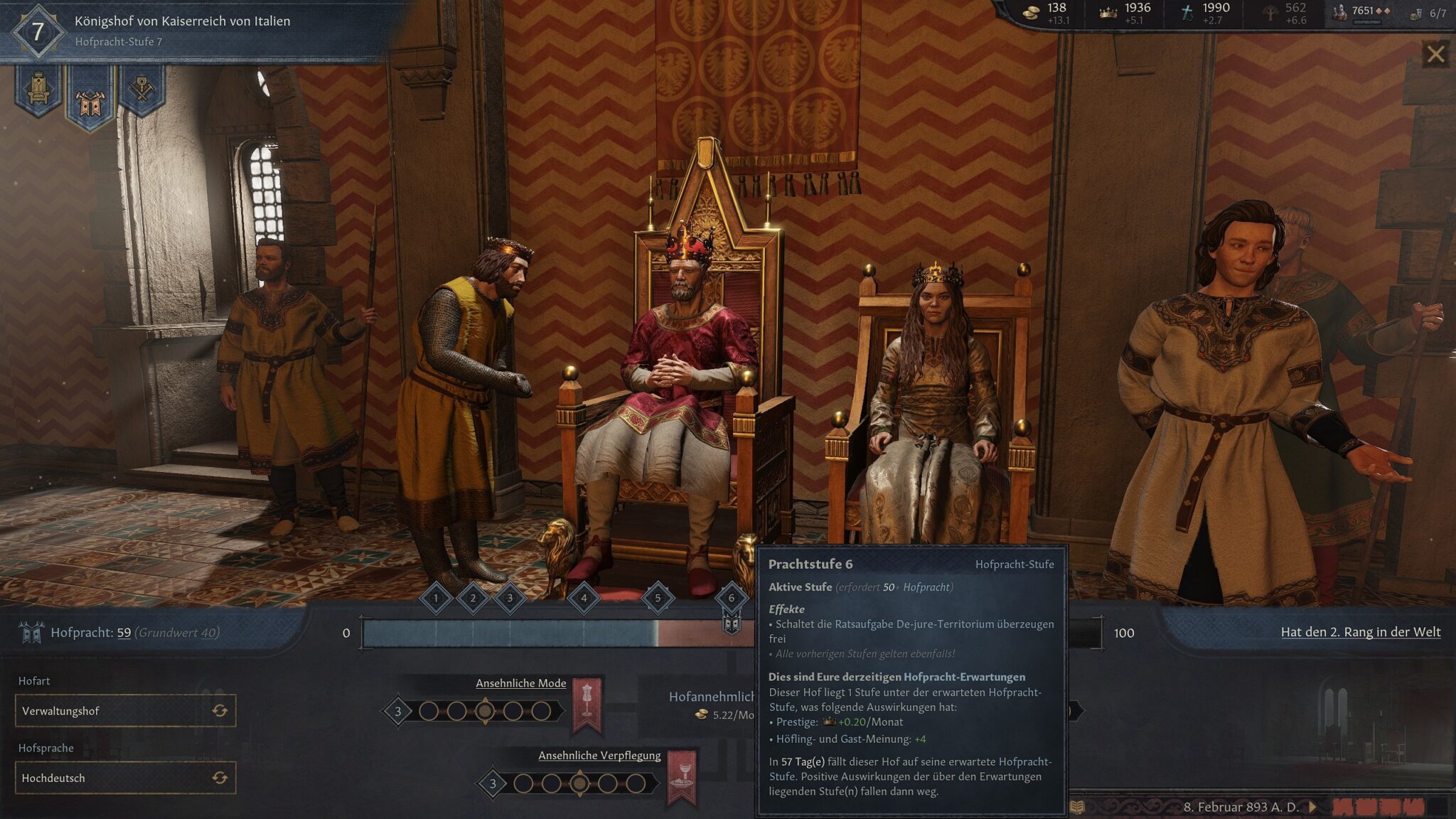
You can inherit artefacts, capture them from others or obtain them through crafting and adventuring missions. For these missions, NPCs always come to your court and offer you their services. If you finance the guests, chains of events develop, which then lead to artefacts of various qualities. Of course, there are also historical objects such as the imperial throne of Charlemagne, which still stands in Aachen Cathedral.
Offices
There is also a reunion with the court offices. For a small salary you can once again appoint a stable master, a court jester, tutor, bodyguards and many others. Most of these bring further bonuses in addition to small relationship bonuses with the dignitaries. For example, a bodyguard lowers the risk of being assassinated in the night – as long as the guard is loyal. Otherwise, the opposite effect occurs. So be careful who you give which title to.
Languages
The languages are brand new. Based on education value, characters can now learn languages that earn them opinion improvements from others with the same language. On top of that, the court language, which in turn is linked to the pageantry system, can now be different from the common people’s language (just as, for example, English nobles spoke French for some time). This can bring more pageantry to the court if the language is widely spoken, but in return it can also lead to problems with communication …
Cultures
Cultures have been properly pimped and now have a similar construction kit as religions. You can create mixed constructs from two cultures present in your empire, which combine the advantages of both and at the same time provide more internal stability. Likewise, you can reform cultures or branch off from an existing one, both of which amount to slightly altering the existing culture.
Because depending on local conditions and the history of a culture, they sometimes bring very strong bonuses. Alpine dwellers can expand possessions in the mountains more easily, the French get extra advantages on their cavalry, and the Spanish can invoke their Gothic origins to enact better laws of succession in the early days.
Who is Royal Court for?
Apart from the actual content, the big question, which has already been much discussed in the Paradox forum, is for whom this DLC is actually made. The price of 30 euros is considerable (buyers of the Expansion Pass or the Royal Edition get it for free).
The consensus there is that the throne room was thought up because of the great success of the 3D characters and is thus to be understood as a further approach to a broader market. Unfortunately, as I already criticised in the preview, the in-depth gameplay elements have been somewhat neglected. While the throne room is all in all a fine thing, it sometimes degenerates into a slightly annoying piece of busywork.
The events at court are often quite irrelevant to your realm as a whole, nor are they written to a standard that makes me want to read them. As with the normal events in the game, it mostly boils down to whether you want to please or annoy anyone and get or lose small amounts of money, prestige, splendour or reverence in the process.
On the other hand, the throne room with its splendour and the artefacts create further visual building blocks that deepen the role-playing experience and add to your imagination. And the systems around languages and cultures also make sense and add depth to the medieval simulation.
Most of these features, however, ultimately only add more content “on top”. They do not have a major impact on the core game experience around titles, conquests and family planning. So you can’t expect a new game, just a more diversified one.
And as such, Royal Court is aimed primarily at those role-players who like more visual stimulation in their day-to-day royalty. For gameplay fans and hardcore strategists, on the other hand, the DLC brings comparatively little. The culture system is definitely an enrichment, but is not worth the price alone. Besides, the basic components of the culture system are part of the free patch 1.5 that comes with the expansion anyway.
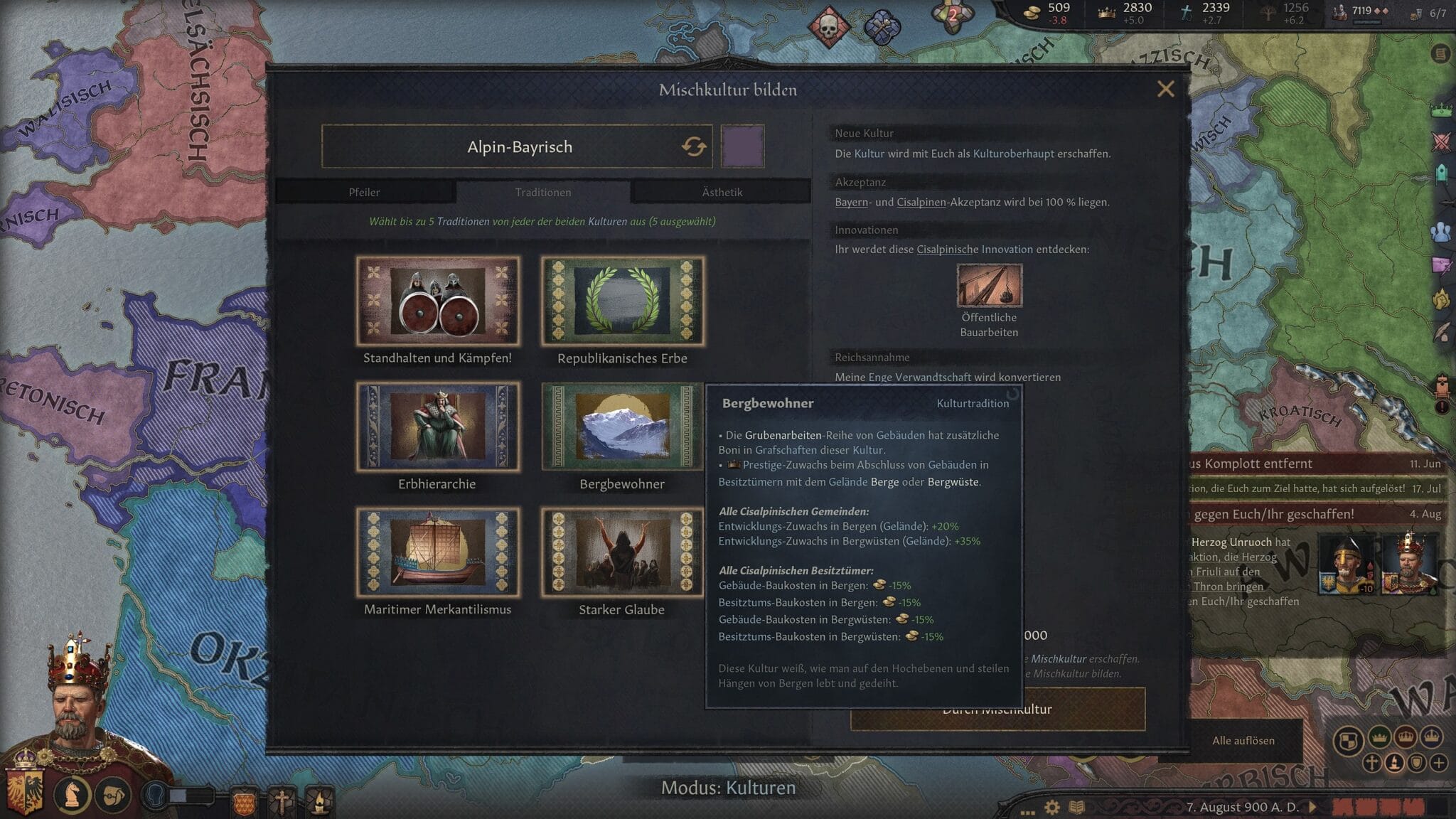
The best time for beginners?
While gameplay experts are likely to be a little disappointed, those who are less interested in a challenge than in experiencing the medieval world can rejoice.
2022 should also be a good year for Crusader Kings 3 beginners. Admittedly, the DLC adds even more features that raise the entry hurdle. On the other hand, Royal Court illustrates the events even better on a visual level. And that, in turn, should make it easier for some to access the fascinating world of Crusader King.
Editor’s verdict
Pomp, this word no longer has a good ring to it these days. It heralds excess and the unnecessary, the waste of resources that could be put to better use. But most people used to see it differently. For example, the Longobard-Italian envoy Liutprand, who in 949 reports on the pomp at the Byzantine court, on lions and metal birds that could whistle. He describes how the emperor’s throne could rise in ways he could not explain, so that the ruler seemed to hover above things. And he describes how immensely amazed and deeply impressed most of the guests were by the splendour.
What I’m saying is that the focus of this DLC makes sense. The display of one’s power was an important instrument in the feudal Middle Ages and thus more than deserves its place in Crusader Kings. Moreover, the implementation is by and large successful. The figures sometimes seem a little bizarre because of their motionlessness. But it is simply nice to see the court members and artefacts actually standing around in one place.
And the other features of the DLC are well thought out and fit well into the game. The big BUT about it is just this: Is this really the content that Crusader Kings 3 needed first and foremost? Or wouldn’t more depth in the standard gameplay have been better? A trading system, for example, or plagues. Or changes that make crusades an actually fun affair. Maybe also really cool event chains and events that can make a ruler’s life unique.
But in the end, I guess what can make the most impact and thus will sell the best has won out. A beautiful 3D throne room just looks better than a trade menu. Nevertheless, Royal Court is successful and enriches the game. In the long run, it will certainly become a must-buy for every fan of the game.

